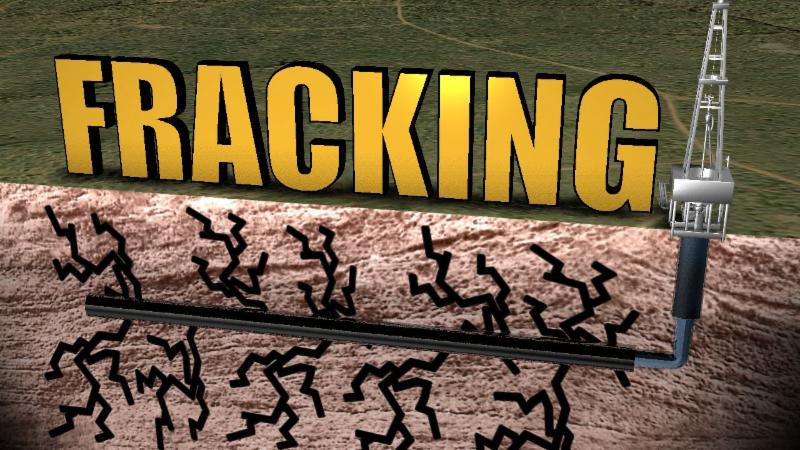
The Capitol was bustling in the countdown to the end of session. All committee meetings end March 1st, meaning any bills that haven’t passed their assigned committee stops are most probably dead for the year. It is a frantic period of shepherding bills through to the respective chambers and making sure companion bills are also teed up for a floor vote. Of the over 2,000 bills that are filed each session, only a few hundred will make it to the Governor’s desk to be signed into law. Here are the highlights of our week in action at the Capitol:
FRACKING: SB 318 OIL AND GAS REGULATION
THE BILL IS DEAD. FOR NOW…
“The Legislature declares that all matters relating to the regulation of the exploration, development, production, processing, storage, and transportation of oil and gas are preempted to the state, to the exclusion of all existing and future ordinances or regulations relating thereto adopted by any county, municipality, or other political subdivision of the state.
Any such existing ordinance or regulation is void.”
One of the most controversial bills in the 2016 legislative session, fracking, was put on life support Thursday in Senate Appropriations. Hanging in the balance could be the future of the oil and gas industry in Florida, and, critics insist, Florida’s environment. Fracking involves using high pressure streams of water and chemicals to blast oil and gas from rocks as deep as two miles underground.
Reports of contamination of drinking water and aquifers, increased cancer rates, and even earthquakes have been attributed to fracking. States around the country are passing fracking bans to protect their citizenry and environment. SB 318, supported by the Oil and Gas Industry and Associated Industries of Florida, has encountered growing opposition throughout the legislative process.
Senate Appropriations Committee Chair Tom Lee (R – Brandon) refused to agenda the bill for his committee until the Department of Environmental Protection sent its recently-appointed Secretary, Jon Steverson to answer committee member questions.
Steverson stumbled on the most crucial question of the day. When asked directly whether he had the power under existing law to stop fracking now, Steverson couldn’t give a yes or no answer.
Steverson’s deputies were also unable to explain how the bill would protect trade secrets for the oil industry, but still allow the public to know all the chemicals used in the fracking process.
The bill died on a 10-9 vote, with Senator Benacquisto voting with the majority. Immediately upon failing, Benacquisto, in a procedural move, called for reconsideration of the bill. It’s not clear when or if Lee will schedule another vote.
EDUCATION
Fla. High Impact Charter Network Bill Advances
Posted on February 24, 2016 by Sue Legg
The devil is often in the details, and this bill SB 830 – School Choice (Stargel – R) has many provisions. In a nutshell, it requires better background checks and more transparency for charter providers. This is good, right? It also gives the State Board of Education the ability to authorize High Impact Charter Networks. Maybe this is not so good.
Charter providers in approved networks apply to districts, but if they are already authorized, is this simply smoke and mirrors? In a way, this is a mini version of the bill to amend the constitution to create a separate charter system. It takes away local control. The constitutional amendment will not make it to the ballot, but the High Impact Charter Networks are likely to become law. If I were a betting person, I would think this is another effort to attract and expand Knowledge Is Power Program (KIPP) charter schools.
State Board of Education member Gary Chartrand likes KIPP, and he brought them into Jacksonville. KIPP has strict behavior rules for students and in other states has a record of high student turnover. Those students who survive may do well academically. The remainder are sent back to public schools.
Districts will have no real oversight of these networks. They receive no administrative fees. Charters will be eligible for capital outlay funding. The Department of Education must give these charters priority in charter school grant competitions. The State Board of Education will set their regulations. Will student retention be examined? Will admissions be truly open? Past is prologue. Wouldn’t it be hopeful if the State Board of Education were serious about the accountability of such networks?
Here are the details in CS/SB 830:
For additional details, please click here to read our Education Blog written by Sue Legg.
The bill passed the Appropriations Committee on Education on a 4 – 1 vote and now heads to the Appropriations Committee. The LWVF will continue to seek changes to this legislation. We continue to oppose SB 830 in its current form. LWVF’s continued priority is to improve the criteria and funding for the majority of students in Florida…The PUBLIC school system, not a charter school program.
PROTECTING OUR STATE LANDS
State lands, including state parks and aquatic preserves, would lose critical protections under legislation moving through the Capitol. SB 1290 (Simpson – R) has been presented as simply an effort by the Florida Department of Environmental Protection to consolidate state laws relating to land management and to give the agency more flexibility as it manages state lands.
The bill unanimously passed the Appropriations Subcommittee on General Government and faces its final committee stop — Appropriations — before it can move to the Senate floor for a final vote. The House companion, HB 1075 (Caldwell -R), is awaiting second reading on the floor of the House. The League of Women Voters of Florida believes that this bill is a very bad idea that seemingly creates a solution where there is no problem.